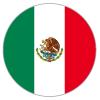North American Legislation & Governance
Advance human rights across North America and satisfy country-specific legal requirements.
 United States
United States
Uyghur Forced Labor Prevention Act (H.R. 6256)
Enacted: 6/21/2022
It is the policy of the United States “to strengthen the prohibition against the importation of goods made with forced labor, including by ensuring that the Government of the People’s Republic of China does not undermine the effective enforcement of section 307 of the Tariff Act of 1930 (19 U.S.C. 1307), which prohibits the importation of all ‘goods, wares, articles, and merchandise mined, produced or manufactured wholly or in part in any foreign country by forced labor.’”
In Force/Law: PUBL078.PS (govinfo.gov)
Canada 
Fighting Against Forced Labor and Child Labor in Supply Chains Act | S-211 (44-1)
Enacted: 01/01/2024
This Act requires in-scope companies to file a supply chain due diligence report. By May 31, subject entities must send the Ministry of Public Safety and Emergency Preparedness (and post on their company website) a report detailing steps taken during the previous financial year to prevent and reduce the risk that forced or child labor was used in the production of goods in Canada or elsewhere by the entity, or of goods imported into Canada by the entity, and other specified information.
Mexico 
If the Ministry of Labor and Social Welfare (“Ministry”) determines that goods were made with forced labor, a resolution will be published on the Ministry’s website; thereafter the covered goods will be prohibited from entering Mexico. Unlike the U.S., Mexico will not preemptively stop imports, and will carry out detentions only after examinations are concluded.
Mexico has also taken steps to comply with its forced labor obligation under USMCA, announcing a resolution to ban the importation of goods produced with forced labor, effective May 18, 2023. This administrative regulation sets forth the goods whose importation is subject to regulation by the Ministry of Labor and Social Welfare, and provides a process for Mexican citizens or entities to submit a petition to prohibit the import of goods produced by forced labor. The petition will be reviewed and may be investigated by Mexico’s Ministry. The government of Mexico can also independently initiate an investigation.
Importers of the subject goods have the opportunity to submit information to rebut such allegations. The decision must be made within six months after the petition is filed, which can be extended to one year. A determination that forced labor is used will result in inclusion on the Ministry’s website and an import ban on the covered goods, effective 90 days after the decision is published.
Free Resources
- US - Uyghur Forced Labor Prevention Act
- US - Uyghur Forced Labor Prevention Act Statistics
- US - UFLPA | Homeland Security (dhs.gov)
- Canada passes first bill against modern slavery | DLA Piper
- Canadian supply chain transparency legislation: new risk for violations of human and labour rights
- Canadian bill S-211, Fighting Against Forced Labour and Child Labour in Supply Chains Act and to amend the Customs Tariff
